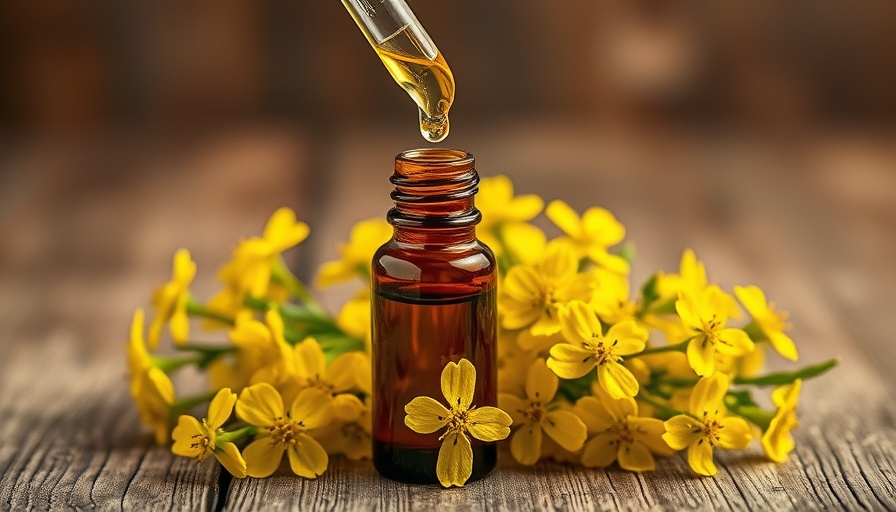
Understanding the Search for Natural Remedies for Depression
The journey to find effective treatments for depression is not just a personal one but a widespread concern globally. As depression instances rise, with *11.3% of individuals in the UK experiencing mild symptoms*, the quest for accessible solutions has prompted many to explore over-the-counter (OTC) products. Recently, a comprehensive study reviewed 64 different OTC remedies, offering insights into what truly works and what doesn't. This research comes as an essential guide for those seeking alternatives to conventional antidepressants.
What Did the Research Discover?
The researchers meticulously combed through 23,933 study records, narrowing it down to 1,367 papers showcasing 209 clinical trials. Their objective was clear: to evaluate the effectiveness and safety of various OTC products taken over a week or longer. Among the stars of the study were *St. John’s Wort* and *saffron*, both demonstrating promise—sometimes paralleling traditional antidepressants in effectiveness. Other remedies like *probiotics* and *omega-3s* showed varied outcomes, but the findings were particularly enlightening for frequently discussed products like *folic acid*, *lavender*, and *lemon balm*, which indicated emerging benefits worth exploring further.
The Importance of Safety in Natural Remedies
While the study largely found minimal safety concerns associated with these natural remedies, researchers underscored a critical need for improved safety reporting across the board. It is essential not just for research credibility but also for consumer confidence. Many individuals turn to OTC products believing them to be safer alternatives without thorough understanding. Continued scrutiny is essential to ensure consumers can make informed decisions based on a robust body of evidence.
Connecting with Readers: A Common Experience
For many, the struggle with depressive symptoms is a shared experience. It evokes a sense of community where individuals seek validation and support. This personal connection is vital as readers may find trust in specific OTC products based on anecdotal evidence from friends or online sources, which can lead to confusion about efficacy. Understanding that rigorous research is being done aids in demystifying the selection process, allowing people to make choices grounded in scientific validation.
The Global Perspective: A Widening Scope of Depression
Depression is often termed an epidemic, not without reason. The World Health Organization reported that depression currently affects over 264 million people globally, spotlighting the need for effective, accessible treatments. The UK’s statistics only mirror a larger narrative where such remedies could play a pivotal role in mental health management. By acknowledging depression as a universal issue, we can approach treatment options with the seriousness they deserve, fostering a space for dialogue on natural solutions alongside traditional methods.
Personal Anecdotes: Embracing Natural Options
Consider Jenna, a 28-year-old teacher who decided to try *St. John’s Wort* after finding little relief from traditional medications. With support from her friends who had positive experiences, she felt inspired to give it a shot. After a month's trial, she reported feeling more like herself, illustrating the personal nature of exploring remedies. Such stories, albeit anecdotal, highlight the ongoing curiosity around natural products for mental wellness—stories that can motivate others to explore options that might resonate with their lifestyles.
Next Steps: What This Means for You
As you consider OTC remedies, remember that not all products are created equal. Research is your ally in uncovering which remedies have backing from clinical trials and which may be riding on trends without substantial evidence. Engaging with healthcare providers can also be invaluable as they can help navigate options based on individual needs and histories, ensuring a tailored approach to mental health.
In conclusion, the findings from the study open up a world of possibilities for alternative mental health treatment paths. The encouragement surrounding certain OTC products suggests a bright future where individuals have choices backed by science. However, it remains crucial to continue advocating for better standards in safety reporting and conducting more rigorous research to ensure these remedies serve those who seek them appropriately.
If you're exploring natural remedies for your mental health or that of someone you care about, take this information to heart. Empower yourself by becoming informed and proactive in your journey. Always consult with a healthcare professional to ensure you select the best options for your needs.
 Add Row
Add Row  Add Element
Add Element 



Write A Comment